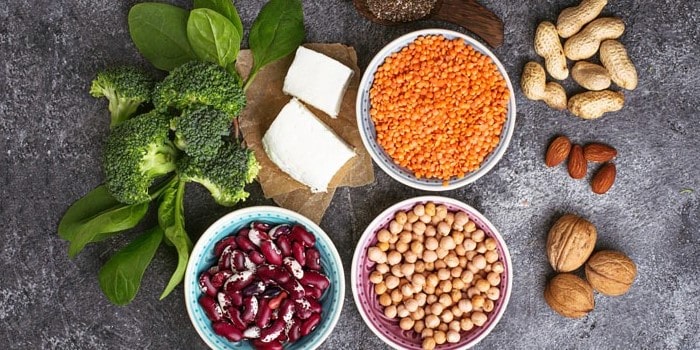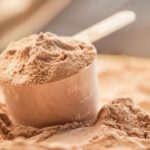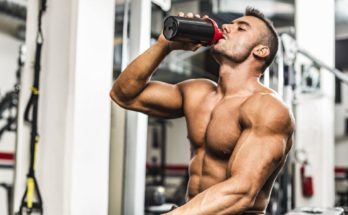The main concern for vegetarians, especially gym freaks who need a high amount of protein, is to complete their daily protein intake. There are not many protein-rich foods for vegetarians as compared to non-vegetarians.
Vegetarian protein sources contain less amount of protein as compared to non-vegetarian sources. However, a well planned vegetarian diet can give you enough amount of protein you need to build muscles.
You can also add whey protein or any other protein supplements in your diet to meet the daily requirements. But it is better to get protein as much as possible through natural food sources.
This article will give you a description of the 11 best protein-rich foods for vegetarians. A proper combination of these foods in your diet can give you enough protein. So let’s take a look at them.
1. Milk
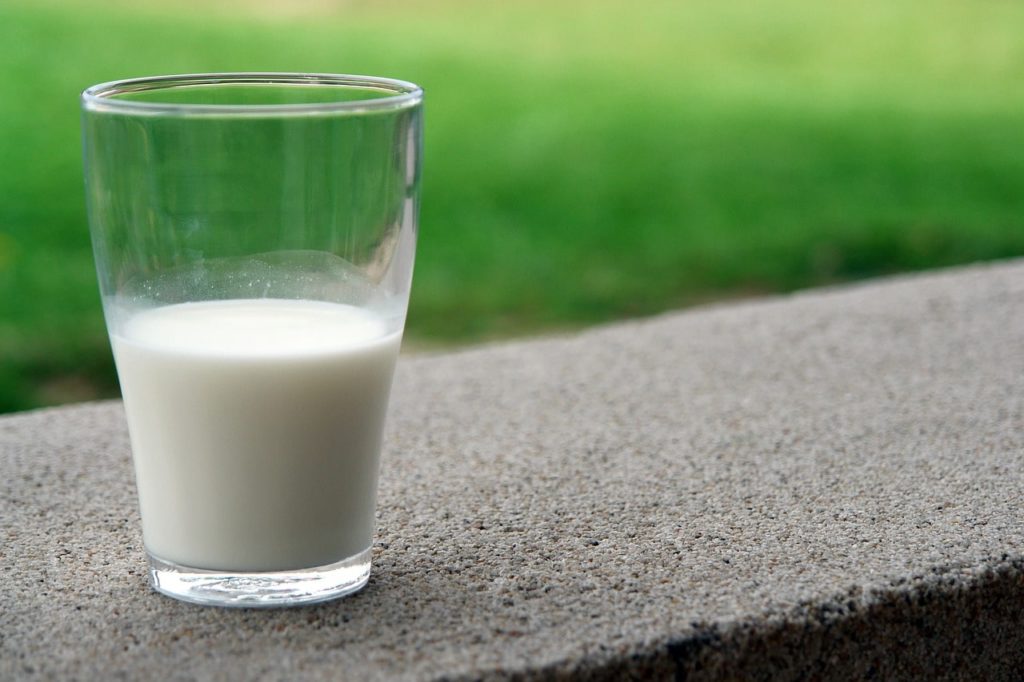
One cup (240 ml) of milk contains:
- Protein – 8 grams
- Carbohydrates – 12 grams
- Fat – Varies
When listing protein-rich foods for vegetarians, milk is one of the best protein sources you can have. It is highly nutritious. You can estimate its nutrition value by the fact that milk is the only source of nutrition for infants.
Milk gives you high-quality protein. In fact, whey protein, which contains the highest quality protein, is solely isolated from milk.
You must have read:
Whey Protein Supplements: The Beginner’s Guide
It is a good combination of both slow and fast-digesting protein. It consists of 80% casein protein and 20% whey protein.
Milk is very helpful for gaining muscle mass and provides you several benefits to athletes. Studies have shown that people can increase their lean muscle mass when they consume milk in combination with proper weight training.
In addition to high protein content, milk provides you some other health benefits also. It is rich in calcium which strengthens your bones and teeth.
SUMMARY: One cup of milk contains 8 grams of high-quality protein. It’s a combination of slow and fast digesting protein which makes it best for gym goers and athletes.
2. Lentils
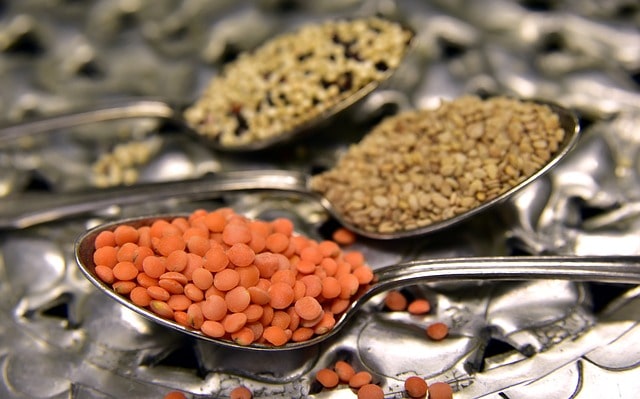
Lentils are one of the best vegetarian protein sources. They are rich in protein, fiber, and minerals.
100 grams of cooked lentils contains about 9 grams of protein. In addition to protein, lentils are a healthy source of carbohydrates. They provide you 20 grams of carbs including 8 grams fiber and only 2 grams of sugar.
Due to their high fiber content, lentils improves digestive health and gives you a fuller feeling for longer. This can lower your overall calory intake.
3. Beans
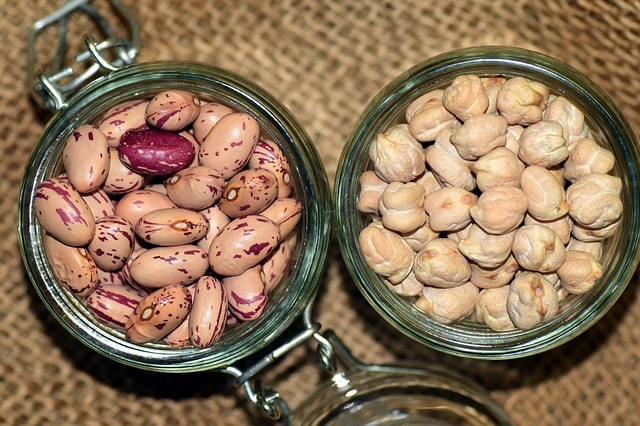
One cup (about 170 grams) of cooked beans (black beans, chickpeas, etc) contains:
- Protein: 15 grams
- Carbohydrates: 45 grams
- Fat: 2 grams
- Fiber: 15 grams
Like lentils, beans are also rich in protein and fiber and have similar benefits.
One important thing about beans and lentils is that they are not a complete source of protein. Mixing them with rice will complete their amino profile.
4. Cottage Cheese (Paneer)
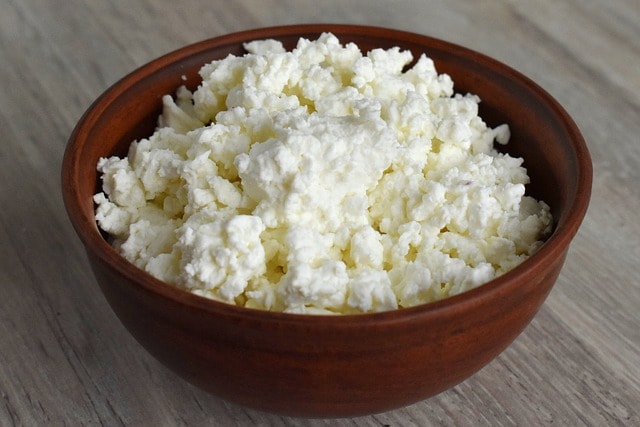
Paneer is a good source of protein and fat. The carb content in paneer is almost negligible which makes it the best vegetarian protein source for a low carb diet.
100 grams of paneer provides you about 15 grams of protein and like other dairy products, it varies in fat content. If your goal is to lose weight then it is better to eat low-fat paneer.
It is rich in slow-digesting casein protein which is why paneer is the best vegetarian protein food you can eat in dinner.
In addition, it contains a good amount of leucine, an important amino acid that directly stimulates muscle growth.
5. Soybean
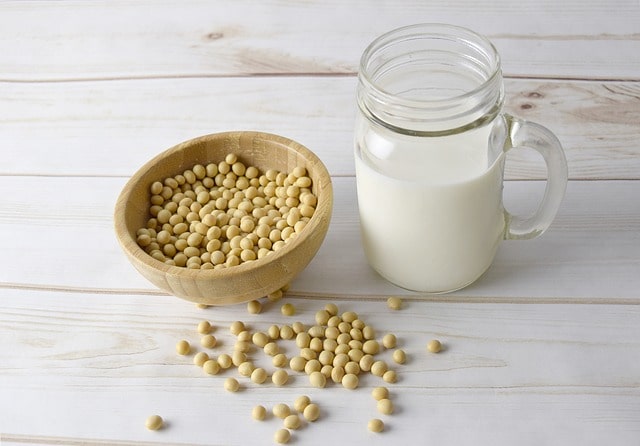
100 grams of raw soybean contains:
- Protein: 36 grams
- Carbohydrates: 30 grams (9 grams of fiber)
- Fat: 20 grams (only 3-gram saturated fat)
Soybean is a high protein and low-carb food. Also, it is low in saturated fat.
Due to its high protein content, soybean is one of the best protein-rich foods for vegetarians. On top of that, its protein to carb ratio is less than 1, which is very beneficial for a fat loss diet.
In addition to the high protein, soybean is a major source of iron. Iron is an essential micronutrient for your body which is used to store and transport oxygen in your blood and muscles.
You can take soy protein in many different forms like soy chunks, soy milk, soy paneer (tofu), etc.
6. Yogurt
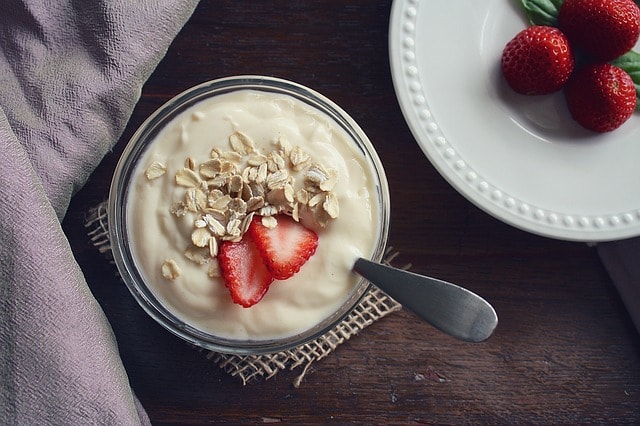
Yogurt contains a mixture of slow and fast-digesting protein. One cup (240 grams) of yogurt gives you about 10 grams of protein.
Studies have shown that people experience an increase in muscle mass on consuming a mixture of slow and fast-digesting dairy proteins.
Along with muscle mass, it also promotes bone health and improves digestion.
In addition to high- quality protein, it is a good source of calcium, vitamin B6 and B12, riboflavin, potassium, and magnesium.
7. Peanut Butter
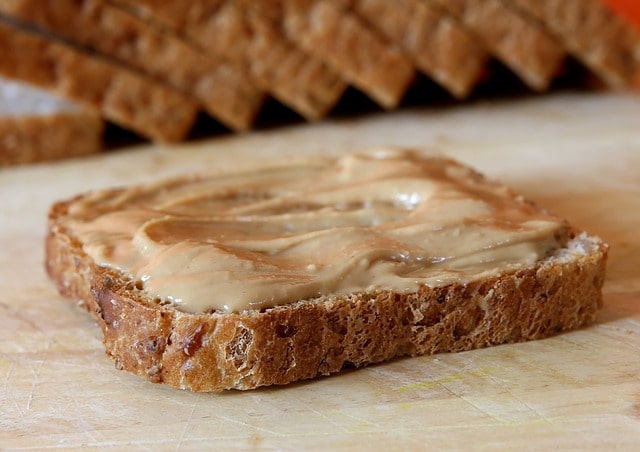
One serving (2 tablespoons) of all-natural peanut butter contains:
- Protein: 8 grams
- Carbs: 5 grams
- Fat: 16 grams
Peanut butter is a delicious way to meet your daily protein requirements. Along with protein, it is also rich in healthy fats.
Peanut butter is a rich source of MUFAs (monounsaturated fatty acids) and PUFAs (polyunsaturated fatty acids) which is why it is also good for your heart health.
However, it lacks an essential amino acid ‘methionine’ which is found in whole-wheat bread. Hence, spreading it on bread completes it’s amino profile and makes it a better protein source.
Despite its rich protein content, you should consume it in moderation because it is very high in calories. The ideal dosage is 30-40 grams in a day.
In addition, peanut butter has several other health benefits too. Here is a detailed article explaining them.
Don’t miss:
9 Health Benefits Of Peanut Butter
8. Almonds
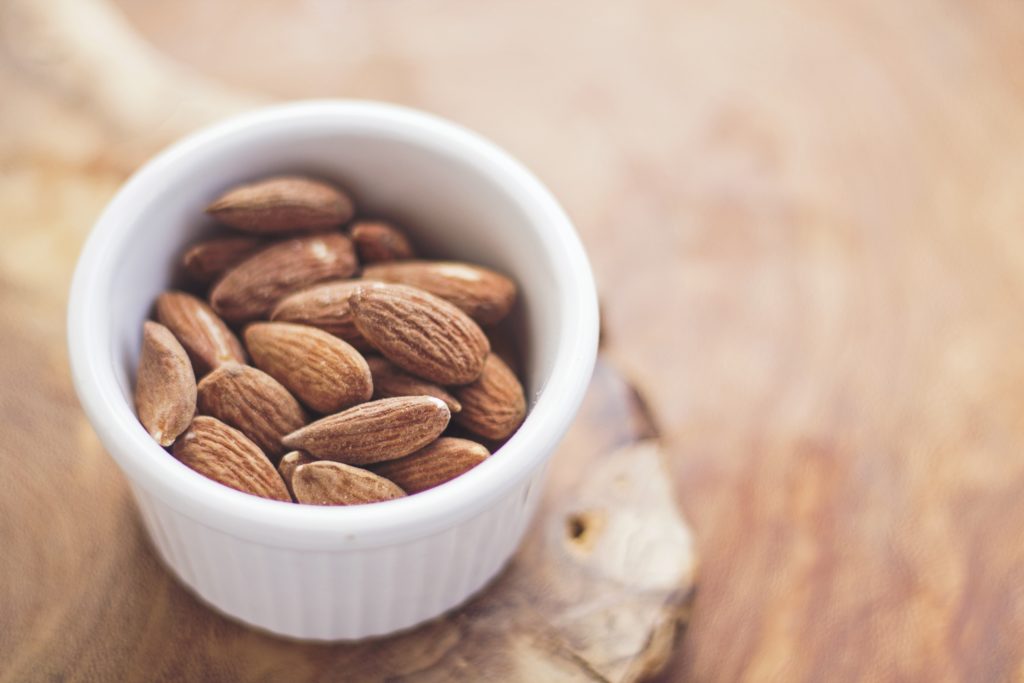
One serving of almonds contains:
- Proteins: 7 grams
- Carbs: 7 grams (3.5 grams of fiber)
- Fat: 14 grams
Almonds are rich in protein and also contains a good amount of healthy fats. Along with that, they are loaded with fibers, antioxidants, and important micronutrients.
Almonds are a good source of vitamin E, magnesium, and phosphorus.
9. Tofu
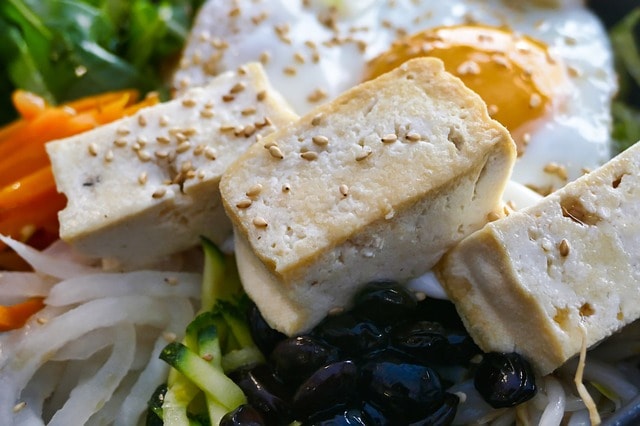
Tofu is one of the best protein-rich foods for vegetarian people having lactose intolerance. It contains soy protein, which is why it is totally lactose-free.
A 100 gram serving of tofu contains about 8 grams of protein and 5 grams of fat. Along with that, it contains a decent amount of calcium which improves bone health and helps in the proper functioning of muscles.
10. Seeds
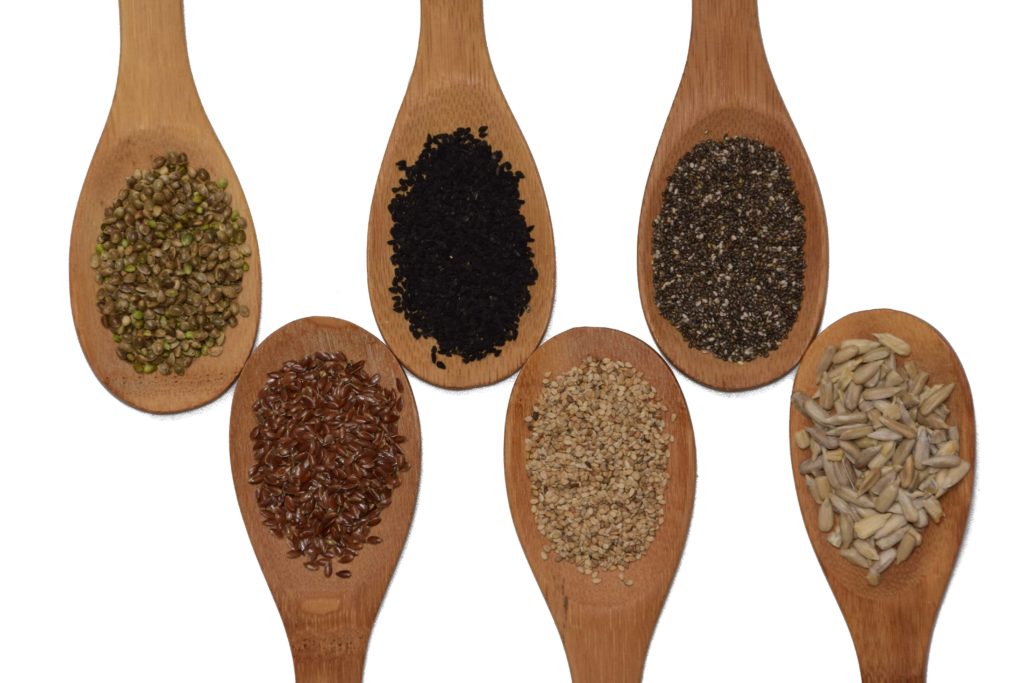
Seeds are highly nutritious as they contain all the basic material necessary to develop into plants. The most commonly eaten seeds include:
- Flaxseeds
- Chia seeds
- Pumpkin seeds
- Sesame seeds
- Sunflower seeds
100 grams of these seeds contain about 16-20 grams of protein.
In addition, seeds are a great source of fiber, healthy monounsaturated and polyunsaturated fats, and many important antioxidants, vitamins, and minerals.
11. Broccoli
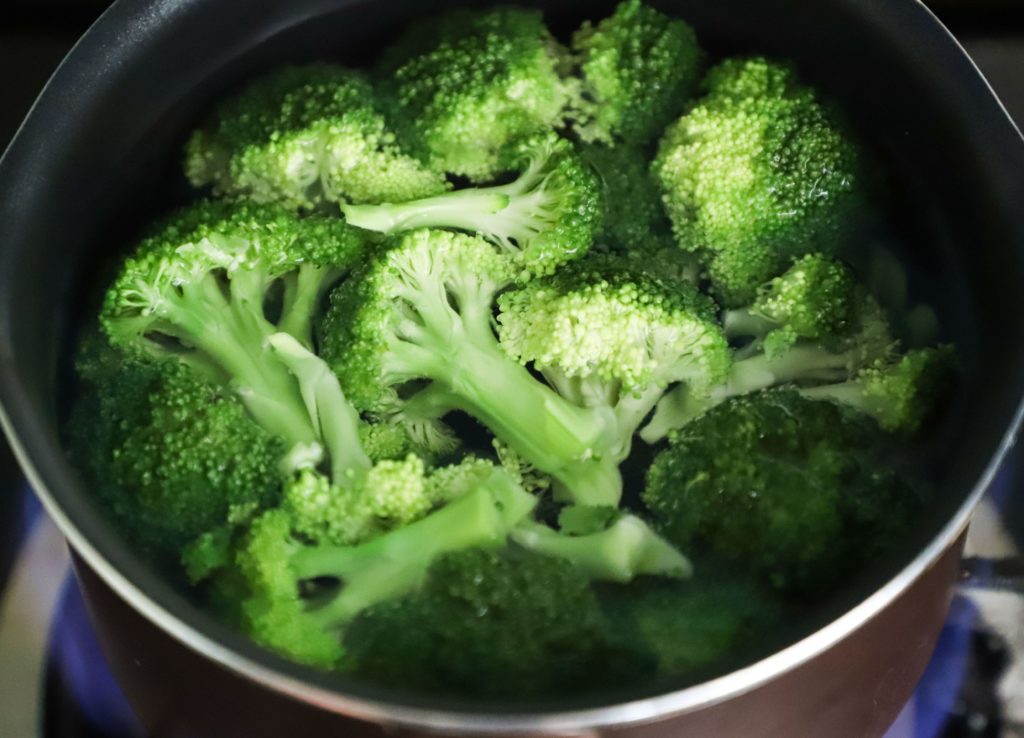
Broccoli contains the maximum amount of protein among all the vegetables. One cup of broccoli provides you:
- Protein: 2.5 grams
- Carbs: 6 grams
- Fat: 0.4 grams
- Fiber: 3.4 grams
Along with protein, it is high in fiber and contains many important nutrients including vitamin K, vitamin C, iron, and potassium.
The Bottom Line
So, these were the 11 protein-rich foods for vegetarians that you must have added in your diet.
In addition to high-protein content, these foods provide you various health benefits also.
If you are struggling in getting enough protein through these foods, then you can add whey protein in your diet.

